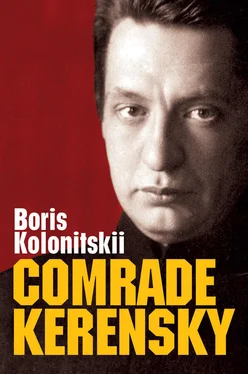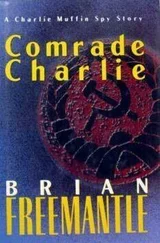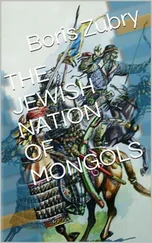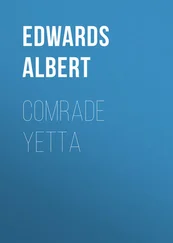Nor did they mention Nadezhda, Kerensky’s mother, née Adler, whose father had been an officer in the Russian army and in charge of the land survey service of the Kazan Military District. 50Her origins were nevertheless frequently discussed: some supposed she was German, others that she was Jewish. 51(Speculation about Kerensky’s supposed Jewish antecedents did find its way into the Russian periodical press in 1917.) 52His mother’s foreign maiden name and the position occupied by his maternal grandfather would have done nothing for Kerensky’s authority as the Leader of the Russian Revolution, and this is doubtless why his first biographers kept quiet about them.
Some biographical sketches had photographs of Kerensky as a grammar-school student, which must have been given to the publishers by the minister himself or by his family. 53Tan, clearly in contact with Kerensky or his relatives, emphasized the future Leader’s successes at school. ‘A. F. Kerensky showed exceptional ability from childhood. He went to school in Tashkent and graduated from the grammar school as the top student, with a gold medal.’ (One is ineluctably reminded of Soviet biographies of Lenin.) Success at school pointed to the Leader’s giftedness, manifest already in his childhood and early youth and a useful indicator of his worthiness to be a Leader. Tan noted also the future Leader’s artistic temperament. ‘From early youth he showed evidence of great spiritual energy. He was attracted to art and music and excelled in the title role of Gogol’s The Government Inspector .’ 54A histrionic bent, as we shall see, did stand him in good stead in the first months of the revolution. Nevertheless, his biographers as a rule wisely remained silent about Kerensky’s performance of the role of Khlestakov. The well-known traits of the character in the play, an air-headed impostor, could only too easily be attributed to the schoolboy who had performed the role so well. When things were going wrong for Kerensky as head of the Provisional Government, and later in emigration, he was openly compared to Gogol’s character. In mid-July 1917, the right-wing popular newspaper Narodnaya gazeta [the People’s Newspaper] reprinted a report in the German Vossische Zeitung in a manifest attempt to discredit Kerensky. The author was Friedrich Dukmeyer, who had been a teacher at the grammar school in Tashkent. Among his students had been Sasha Kerensky, about whom Dukmeyer reminisced in 1917. The article reported Nadezhda Adler’s German antecedents and that Kerensky’s grandfather had held the rank of general. The ex-schoolmaster recalled that his pupil ‘dressed somewhat foppishly’, was fond of dancing and theatrical performances, and that the role of Khlestakov ‘seemed to have been written specially for him’. He observed that, ‘even then’, Kerensky was pale. 55The frailty of the minister’s health, which was, as we shall see, much discussed in 1917, seems from Dukmeyer’s account to have been with him almost from birth.
Kiriakov tells us that Kerensky chose his political destiny while still at school. It is said to have been then that he decided to dedicate his life to the liberation of the Russian people.
From all that he read, heard and saw, the lively imagination of Sasha Kerensky re-created in his mind the age-old picture of the slavish life of the entire Russian people – toiling, slow to anger, all-enduring, all-forgiving and long-suffering. He fell in love with this toiling Russian people with all the ardour of his boyish heart. He was filled with profound respect for the first champions of the freedom and happiness of the people. We can hardly doubt that the first heroes Sasha Kerensky wanted to imitate were the heroic fighters of the People’s Will.
Even the city where the future leader went to school is seen as a factor revolutionizing the young schoolboy: ‘Tashkent is the gateway to Siberia. The groans of Russia’s political fighters in the cause of freedom, languishing in penal servitude and exile at that time, were closer and more keenly felt there.’ 56Kiriakov is manifestly exaggerating the revolutionariness of his hero. Kerensky himself makes no mention in his memoirs of having held radical views then, or of having read pamphlets about the People’s Will. ‘Neither I nor my classmates were aware of the problems that were exciting young people of our age in other parts of Russia, leading many of them to join clandestine societies while still at school.’ 57Kiriakov was clearly exaggerating, but that, in the view of this Narodnik, was how the childhood of a true champion of freedom should have passed. That was the canon for writing the biography of a Leader of the people, and the traditions of the revolutionary underground moved Kerensky’s supporters to come up with a biography to bolster his authority.
Kerensky’s years as a student at St Petersburg University (1899–1904), first in the faculty of history and philology then in the law faculty, were important for the Leader’s biography because it was then that he ‘developed his world view, a robust system of thought which set him on the path to honour, glory and the salvation of Russia,’ as the Odessan biographer puts it. 58The mention of the conscious education and self-education of the future politician is not fortuitous: a ‘robust’ world view, consciously elaborated as the result of independent assimilation of knowledge, was an important qualification for a radical Leader.
Some of Kerensky’s biographers mention his marital status. In 1904 he married Olga Baranovskaya. 59Sometimes a piece of writing would be accompanied by photographs showing Kerensky’s wife and sons, or sometimes just the minister himself with his children. 60It was accepted that the Leader’s family life was of public interest. No doubt on these occasions his family had assisted the writers.
Some of his biographers were given to exaggerating Kerensky’s radicalism in his student days, too, and his involvement with the Socialist Revolutionary Party. ‘His love for the people, the dispossessed toiling people, grew ever strong and expanded in Kerensky’s honest breast. It was this love which impelled him towards the party closest to the people, the peasants and workers, to a party which had inscribed on its banner, “Land and Freedom for all the toiling people. Through struggle justice shall be yours”, the party of Socialist Revolutionaries.’ So wrote Kiriakov, bringing the biography of his hero ever closer into line with the programme of the Socialist Revolutionary Party. 61In reality, the young student’s oppositional leanings did not move him towards adopting the platform of any party.
After Kerensky graduated from university, his aspiration was to join a group of ‘political barristers’ who defended people accused of committing political crimes. Becoming a member of this association was not straightforward: only lawyers who were particularly trusted in radical circles were accepted. To a scion of the ‘bureaucracy’, the son of an official prominent in the Ministry of Public Education with connections in the capital, the initial attitude was one of wariness. He even experienced difficulties being admitted to the legal profession at all, which was dominated by people with liberal or radical views. Kerensky’s biographers omitted to mention these difficulties when writing in 1917.
Kerensky became an assistant attorney-at-law. Eager to become a ‘political’ defence lawyer, he gave free legal advice to the poor of the capital. Like many of his contemporaries he was greatly shocked by the events of Bloody Sunday, 9 January 1905, which he witnessed at first hand. Kerensky visited the families of demonstrators who had been killed by the troops, giving them legal advice. He signed a protest against the arrest of prominent intellectuals who had tried to avert the tragedy. In this connection he first came to the notice of the secret police, and a file was opened on him. The 1917 pamphlets reported this, and the attention paid to the young lawyer by the tsar’s Okhrana, confirmed by the publication of documents, further bolstered his revolutionary credentials. 62
Читать дальше









